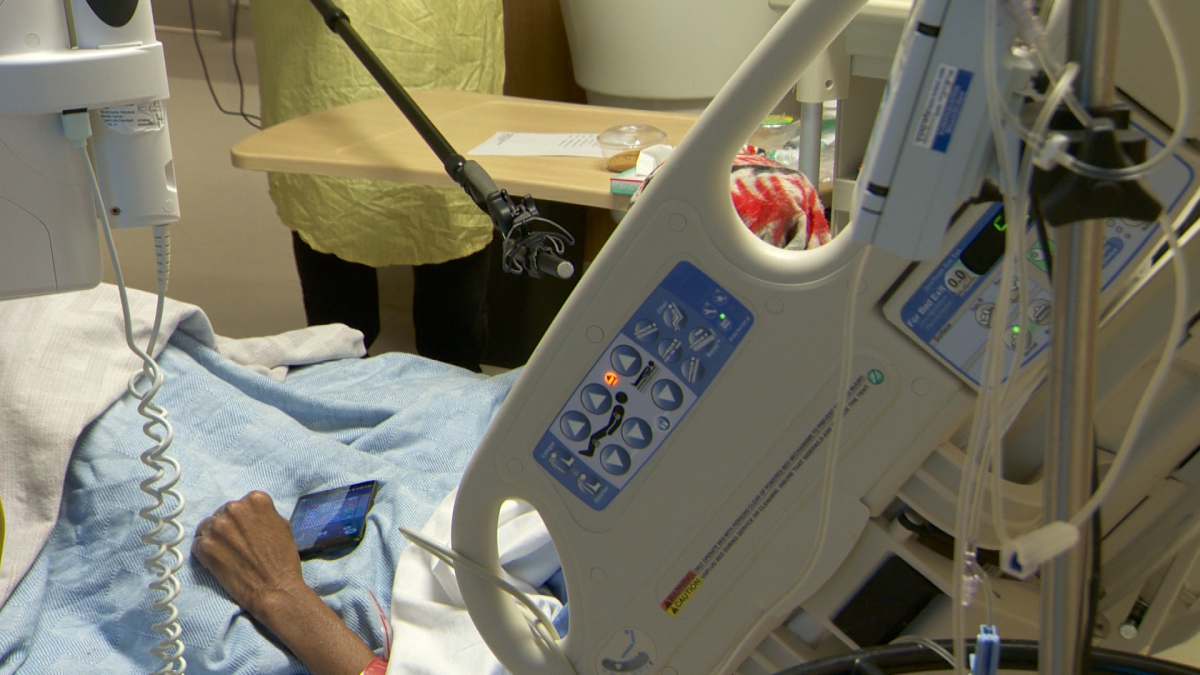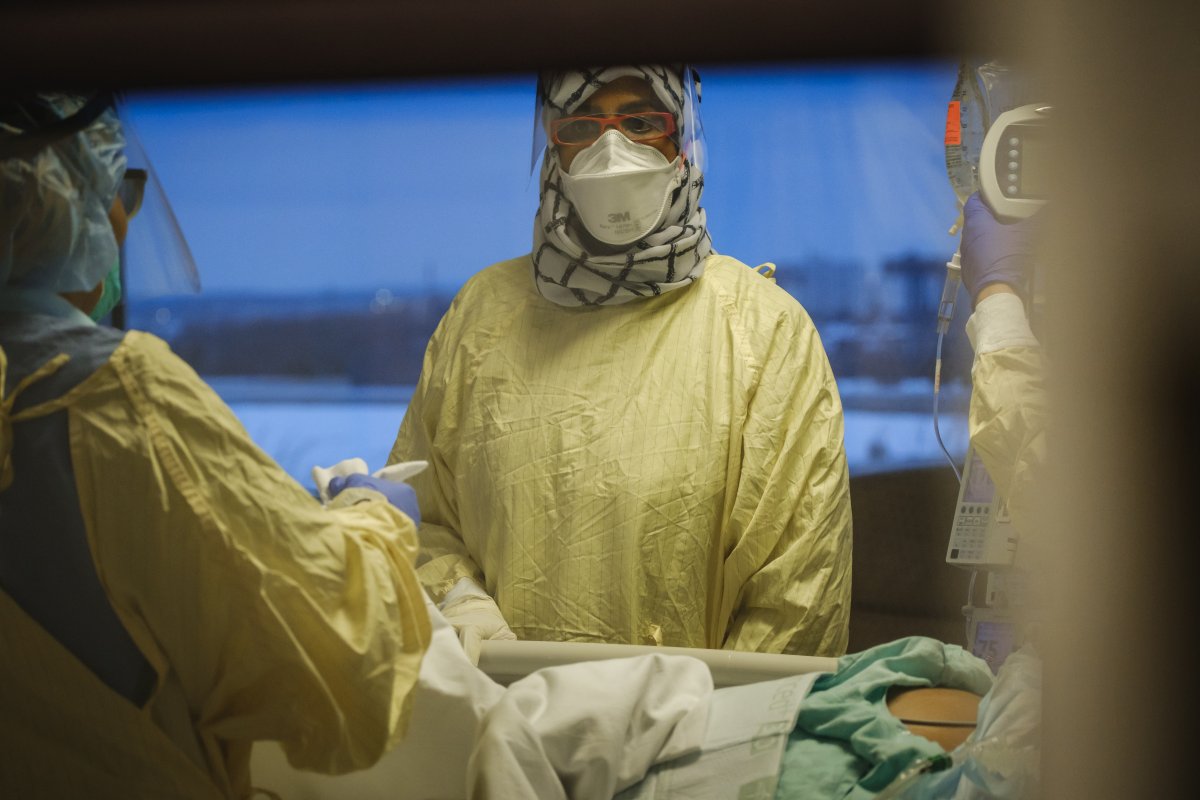Slouched in her hospital bed and wrapped in a blanket, Dawn admits her story is a cautionary tale. She was reluctant to receive a COVID-19 vaccination until she became infected with the disease last weekend.

“I had hesitated. I had been contemplating,” she said. “I just felt that there wasn’t enough known (about the vaccines) and I wanted to know a little bit more. But in the meantime, while the ‘more’ is coming, you could be dying.”
Global News met Dawn, whose last name we’re withholding, during a visit to Humber River Hospital in Toronto. She’s in her 60s and appeared frail but with a warm smile.
She was admitted five days earlier with a bad cough and breathing difficulties.
“This is a virus that’s quite nefarious. I’m going through it and I’m telling you it’s not something you want to play with,” she said. “Be careful, do what we’re supposed to do and be vaccinated.”
As of Jan. 19, the hospital was caring for 175 patients with COVID-19. About 40 per cent were admitted for other reasons and tested positive upon arrival. But in the intensive care unit are numerous examples of why doctors warn the Omicron variant doesn’t always produce a “mild” version of the disease.
“We’re really only seeing critical illness in two types of patients: unvaccinated patients and the immunocompromised patients,” said Dr. Jamie Spiegelman, a critical care physician.
Most of the patients in the ICU at Humber River Hospital are infected with COVID-19 and more than half are unvaccinated. One patient, a 52-year-old nurse from a different Toronto hospital, is diabetic, unvaccinated against COVID-19 and is now on life support.

Get daily National news
“She’s on a ventilator, quite sick, and we’re not sure if she’s going to survive or not,” Dr. Spiegelman said.
“I get frustrated. It’s a preventable disease. If these people got vaccinated, I wouldn’t be their doctor, I wouldn’t be treating them in the ICU.”

Spiegelman said the biggest challenge of the Omicron-fuelled fifth wave isn’t the sheer number of cases, but rather the shortage of hospital staff.
During the first two years of the pandemic, around 500 staff at Humber River Hospital caught COVID-19. They’ve seen 700 infections just this month, according to Max Marquez, the hospital’s director of the occupational health and safety department.
“That number more than doubled to 1,200 staff infected in just a matter of weeks after the holidays and the new year. The great majority of our infections come from the community,” Marquez said.
“It’s been a real challenge to keep the hospital running.”

Humber River Hospital is located in northwest Toronto, which has remained one of the areas hardest hit by the pandemic in the country. During the previous waves, staff would often transfer patients to other hospitals across the province.
“We were able to transfer people out to other communities like Sudbury and Ottawa and places like that. Now with staffing challenges, we’re no longer able to do so,” explained Alta Ng, a patient flow manager, “because every other hospital is experiencing the same staffing contingency.
“So it’s been challenging.”

Amid the record COVID-19 caseload and staffing shortage, the hospital is also forced to contend with the fallout from the latest COVID-19 restrictions. The volume of patients arriving in the emergency room in mental distress has doubled in January, including cases involving depression, suicide attempts and substance abuse.
Staff also described a sharp increase in patients arriving with advanced infections or illness, because they were afraid or delayed coming to hospital.
Anna Mazzocco has diabetes and was delayed in seeking treatment as result of the pandemic. By the time she saw a doctor, her infection had spread from her toe to her kidneys.
“I consider myself a COVID victim,” Mazzocco said. “The infection has spread and shut down my kidneys. So dialysis is now possibly a life-changing thing. A doctor may have been able to identify it if they had seen it or would have run some tests.”
Facing that uphill battle, after nearly two years and five pandemic waves, some front-line staff have had enough.
“I’m tired and overworked and underpaid,” said Fatima Mohamed, an ICU nurse for the past 15 years. She said some of her colleagues have quit or taken early retirement.
She plans to do the same, though not until after the pandemic is finally over.
“I decided, to be honest, after you reflecting on it, I can’t continue like this,” she said. “Maybe within five years, I’ll retire. I can’t do it anymore.”
- Cineplex slapped with record $38.9M fine over online booking fee
- After controversial directive, Quebec now says anglophones have right to English health services
- Conservatives set to table non-confidence motion Tuesday. What to expect
- U.S. moves to ban Chinese software, hardware from all vehicles in America













Comments